Student Success Stories
This summer, Master of Public Affairs student Marina Porto took her public service education beyond the mainland United States—traveling to Puerto Rico to complete an internship with the Puerto Rico Fiscal Agency and Financial Advisory Authority (AAFAF). Her experience reflects the Truman School’s commitment to preparing students to lead across diverse policy environments and government systems.
A Global Perspective on Public Policy
For Porto, the decision to intern in Puerto Rico stemmed from a desire to merge her academic interests in public policy with a deeper understanding of cultural diversity.
“I wanted an experience that would let me combine Public Policy with cultural diversity, and Puerto Rico has both,” Porto explained. “Its unique political status and fiscal challenges made it an ideal place to study government decision-making and intergovernmental affairs firsthand.”
At AAFAF, Porto engaged in projects related to fiscal policy and legislative affairs she found both demanding and deeply rewarding.
Lessons in Language and Resilience
Among the many takeaways from her summer abroad, Porto was most struck by the subtle complexities of language and culture.
“Even though Puerto Ricans and I share the same language, Spanish, it was sometimes hard for us to understand each other due to cultural differences and the meaning of certain words,” she said. “It was fascinating to see that the same words and phrases could mean different things.”
She also noted that the people she met exemplified remarkable resilience and optimism in the face of ongoing economic and political challenges.
“Despite issues such as emigration and political conflict, Puerto Ricans remain supportive, optimistic, and deeply committed to making the island a better place.”
Shaping a Future in Fiscal Policy
Porto’s work at AAFAF offered an invaluable opportunity to observe how public policy design and implementation directly influence a community’s economic and social well-being.
“My experience helped me understand the importance and impact of public policy on Puerto Rico’s development,” she reflected. “It also gave me firsthand insight into the challenges public policy analysts face when shaping fiscal plans and social programs.”
Looking Ahead
Building on her internship experience, Porto now plans to pursue a Ph.D. in Public Affairs or Public Policy, focusing on the intersection of fiscal policy, poverty reduction, and inequality.
“I want to build bridges between academia and the real world,” she said, “by bringing solutions to the challenges facing the public sector.”
Her journey illustrates how experiential learning opportunities, whether local, national, or international—prepare Truman School students to become thoughtful, adaptive, and impactful public servants.

From Volunteer to Visionary: Lindsey Linkous's Journey in Food Security
Lindsey Linkous first developed an interest in food security issues during her high school years, initially through volunteering at food banks to fulfill service hour requirements. Volunteering, though initially obligatory, evolved into a genuine passion, inspiring her to seek further involvement with food security organizations. One summer, she volunteered with a family friend's nonprofit, which focused on preparing and delivering nutritious meals to cancer patients in the greater Nashville area. This growing interest persisted into her college years, where she undertook various projects centered on food security and subsequently became involved with Tiger Pantry during her sophomore year and continues throughout here collegiate experience.
Reflecting on her tenure as the director of the Tiger Pantry, Linkous identifies the expansion of the pantry's reach and student leadership as her most significant accomplishments. Under her guidance, the pantry enhanced its social media presence and physical footprint on campus, thereby extending its services to a larger population in need. Additionally, she acquired invaluable experience in fundraising, successfully advocating for Tiger Pantry before university funding boards.
Linkous also implemented a restructuring of the executive board, which improved operational control and communication efficiency, and facilitated the inclusion of more student leaders. Despite these achievements, she expresses regret over not establishing a robust Supplemental Nutrition Assistance Program (SNAP) on campus. While initial efforts to collaborate with the Central Missouri Food Bank to assist patrons with SNAP applications were not fully realized, her attendance at the Universities Fighting World Hunger Summit underscored the critical importance of SNAP. She remains optimistic that the succeeding executive team will develop a comprehensive SNAP workshop.
Linkous connected the considerable overlap between her academic studies in the Master of Public Administration (MPA) program and her responsibilities at Tiger Pantry. Her coursework, particularly in Strategic Management of Public Service Organizations, provided theoretical frameworks and practical strategies that she directly applied to her leadership role at Tiger Pantry. Notably, her decision to restructure the executive board was inspired by insights gained from this course.
Looking ahead...Linkous has completed her Bachelor of Arts in Public Administration & Policy and Economics and is continuing her MPA studies with an expected graduation in May 2025. Although her term as Executive Director of Tiger Pantry has concluded, she plans to remain engaged by volunteering on a weekly basis. During the summer, she is interning with the Institute of Public Policy, contributing to the Foundational Public Health Service Gap Analysis Project, which aims to collect data from Missouri counties to forecast budgetary and labor needs for foundational public health services. In the fall, she has an assistantship within the Truman School. Linkous remains open to diverse career opportunities but aspires to continue her work within the food security sector or a related field of social services.
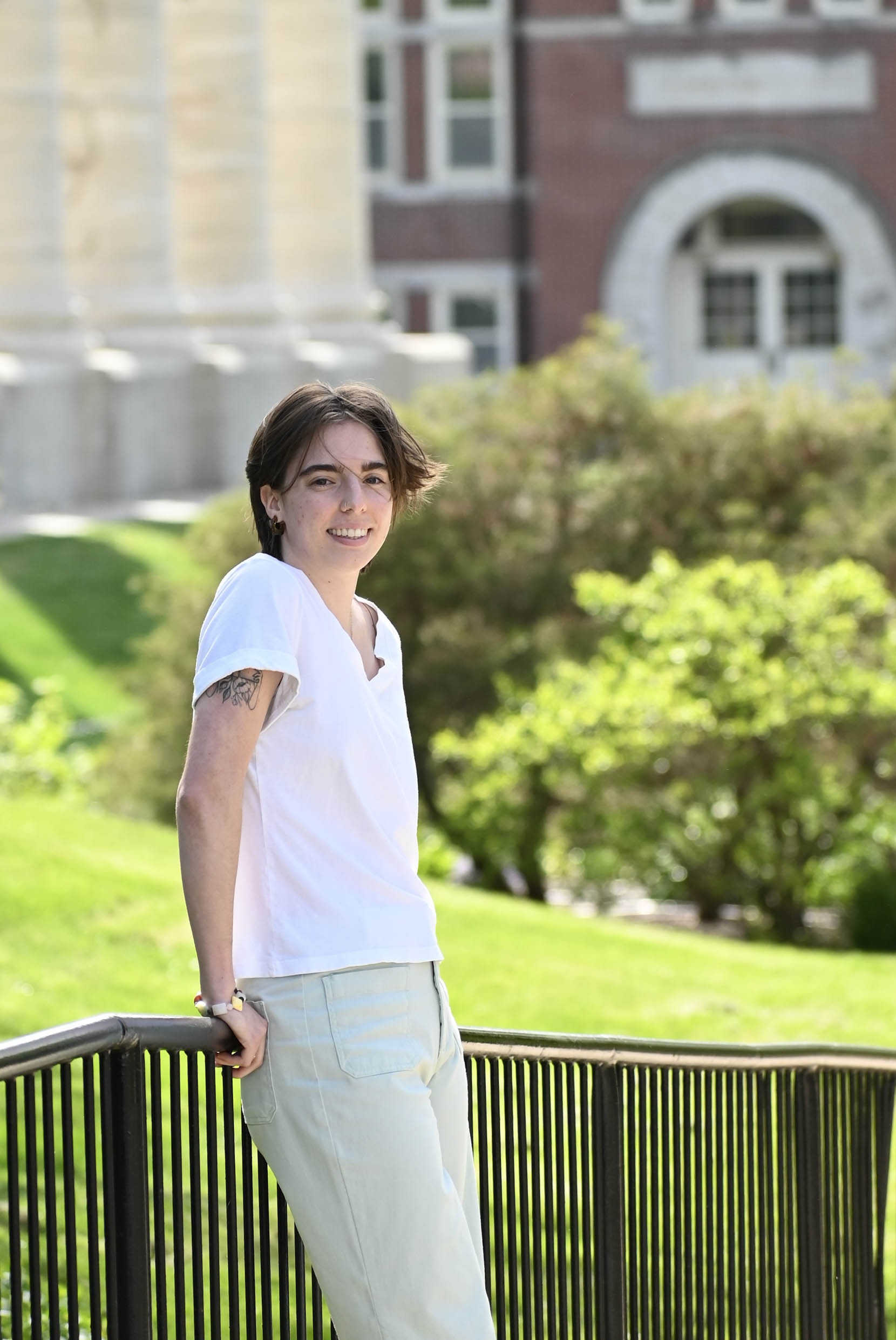 | 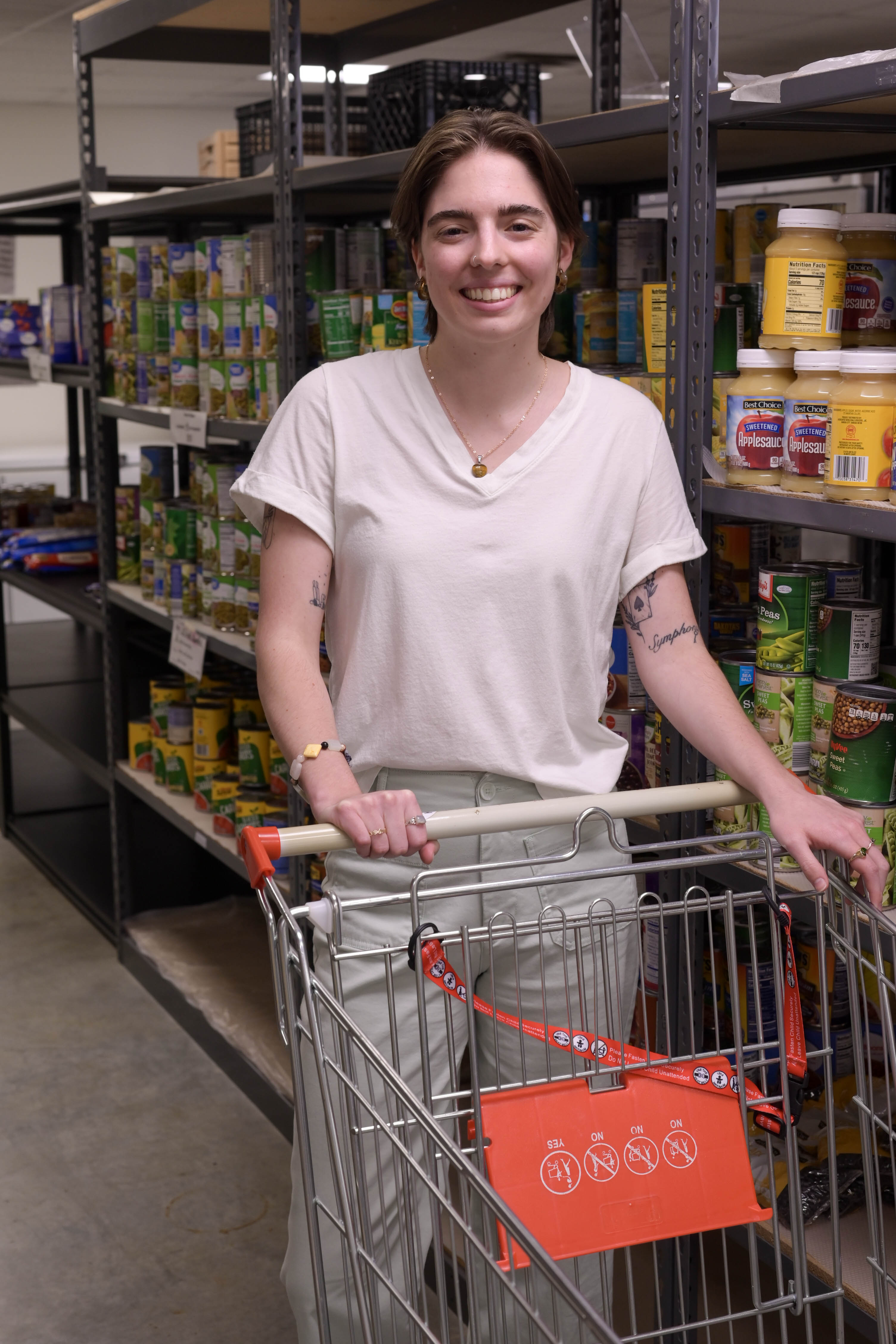 | 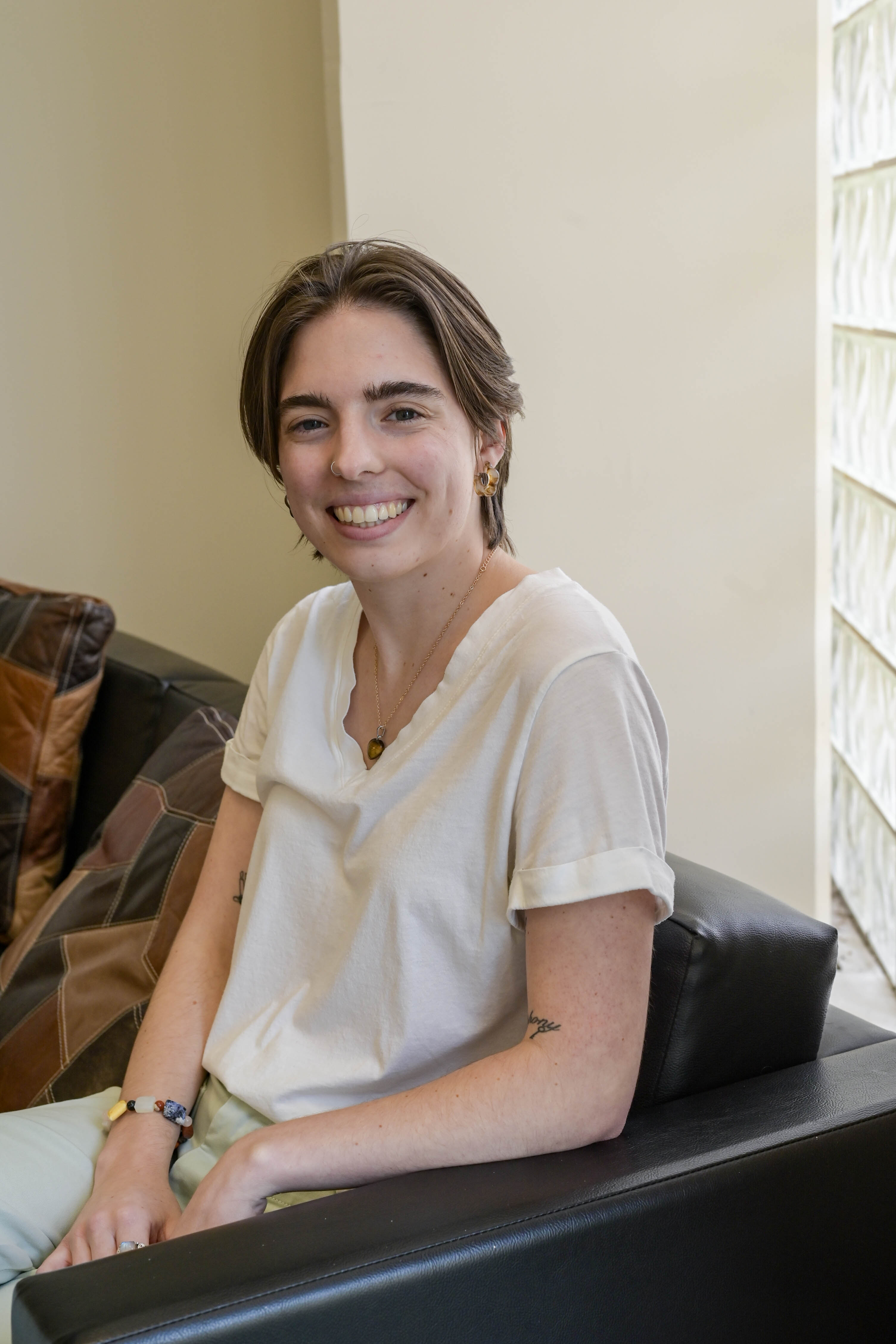 |

Heather Kopp is a PhD candidate in the Truman School of Government and Public Affairs studying international relations and comparative politics. In 2019, she received her Bachelor of Science in political science and history at Truman State University (TSU). Starting Fall 2024, Kopp will be an Assistant Professor in international relations at Texas Tech University.
Kopp cites a political methodology course at TSU as the catalyst for her interest in political science. “I never knew you could operationalize concepts, construct models, and produce quantities of interest that can generalize beyond one case,” Kopp said about this pivotal discovery. “This social scientific process intrigued me,” she continues, “and I started viewing political science as a puzzle. I realized I wanted to conduct research that tried to piece together a part of that puzzle.” Her undergraduate advisor, Dr. Michael Rudy, also played a pivotal role in her academic journey. Kopp presented at academic conferences, gained statistical software skills, and published a co-authored article. This glimpse into graduate school life led her directly into pursuing a doctoral degree.
Kopp research is on the domestic determinants and consequences of interstate conflict. Her dissertation examines the role of party issue ownership on the severity of domestic audience costs that leaders incur as a result of interstate conflict. “I like exploring the intersection between domestic politics and interstate conflict,” Kopp explains, “because I believe the synthesis of these topics yields greater insight into the strategic motivations underlying states, violent non-state actors, politicians, and voters before, during, and after conflict.”
It is these interests that remind Kopp of what has surprised her about graduate school. Through her coursework, though, she also found inspiration in other areas. “In my third year,” Kopp recalls, “I talked to professors about the fact that I wanted to study comparative topics too. I worried if such research changes were desired this far into the program.” She learned that changing research interests are normal as a graduate student. “Being introduced to new ideas and theories in your coursework shows you have grown as a scholar,” Kopp states.
For those considering graduate school, Kopp suggests talking to your advisors about your interests and whether a PhD is best-suited for your career goals. For those wanting to pursue a PhD, Kopp offers some suggestions. If you have specific programs in mind, she suggests emailing some graduate students along with the Director of Graduate Studies. “If you have not yet attended an academic conference,” Kopp adds, “I suggest going to one, especially if you have research goals. Even if you are not presenting, I think just seeing what conferences are like will help you later down the road.” When it comes to deciding on which programs to apply to or which program to join, Kopp has a final piece of advice. “You can look at statistics and get advice from numerous people– and I strongly suggest you do all of that,” Kopp says, “but at the end of the day, you should make a decision that feels right to you. Graduate school, while extremely rewarding in many ways, is challenging. If you decide to pursue a graduate degree, you should pursue it at a place where you feel supported, where you feel like you will have people to help you in those challenging moments, and where you feel confident that you will accomplish your academic goals.”
Half-way through her final year, Kopp reflects on her time in the PhD program: “I have several mentors whose support I’m always going to be thankful for, a close cohort, strong co-authorship relationships, methodological and theoretical training from classes and external programs that I never would have had without the support of faculty here, and the confidence that I will be successful in my post-graduate career. For these reasons and more, I’m very grateful for this program.” For anyone with questions about graduate school or the graduate program at Mizzou, you can contact Kopp at hmk439@mail.missouri.edu.
The past few years have been a whirlwind of change and self-discovery for many, and one Truman School student,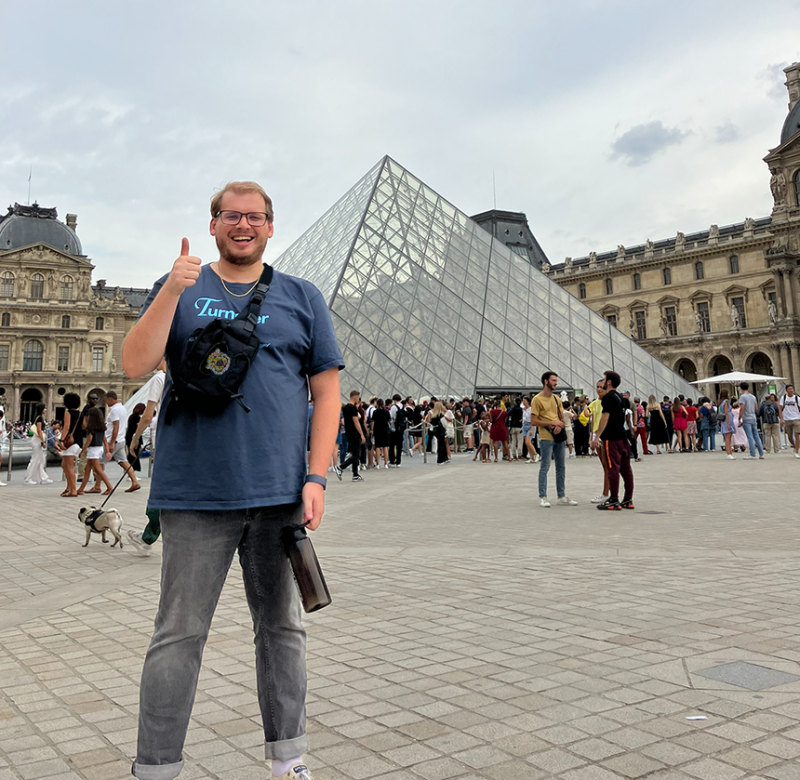 Blake Bixby, has a story that many will find familiar. The pandemic prompted a reassessment of his professional goals, leading to a transformative journey that highlights the flexibility and opportunities offered by the Truman School of Government and Public Affairs.
Blake Bixby, has a story that many will find familiar. The pandemic prompted a reassessment of his professional goals, leading to a transformative journey that highlights the flexibility and opportunities offered by the Truman School of Government and Public Affairs.
In 2020, fresh off two years of Americorps service, Blake faced challenges in securing a new position. It was then that a professional mentor suggested exploring graduate school for short-term stability and long-term benefits. With this advice in mind, he enrolled as a non-degree seeking student in the Master of Public Affairs (MPA) program at the Truman School.
What stood out for him was the program's flexibility. Despite living in Florida at the time, he was able to take online courses and later continued on-campus upon returning to Missouri. The flexibility in course selection allowed him to delve into areas beyond his immediate professional responsibilities. For instance, a grant writing course taken over the summer turned out to be not only enjoyable but also beneficial for his future endeavors.
These courses provided a deeper understanding of the policy process, laying the groundwork for a move to Missouri’s Department of Higher Education and Workforce Development. "Again, because of the flexibility, I was able to work full-time and move back to online courses," said Blake. The Truman School's curriculum prepared him for the responsibilities of crafting policy at a state agency.
A piece of advice offered by Blake: "ALWAYS READ YOUR NEWSLETTERS!" It was through the Truman School's newsletter that he learned about the Mizzou in Paris program. Taking a leap of faith, he applied to teach English courses in Paris for a year, an opportunity made possible by the global recruitment campaign of the University of Paris in Nanterre. Today, he is living the dream, engaging in a cultural exchange with students from around the world and continuing to complete his degree online.
Reflecting on his journey, he emphasizes the importance of flexibility in the Truman School program. Having lived in four different cities and pursued three different careers, the online track ensured a consistent academic experience. Blake expressed confidence in the quality of education received online, asserting it matched the standards of on-campus courses.
In gratitude, Blake acknowledges the invaluable support received from the international center, helping him to plan and maximize his time abroad. He credits the Truman School for his current position, emphasizing that without this graduate program, he wouldn't have discovered such unique opportunities. While uncertain about his future, he is considering renewing his contract in Paris and envisions a continued focus on higher education in his career path.
This inspiring journey from pandemic uncertainty to teaching in Paris showcases the transformative impact of the Truman School of Government and Public Affairs. The flexibility, diverse perspectives, and global opportunities offered by the program have empowered Blake to navigate a dynamic career path and make a meaningful impact in the field of higher education.
A Well-Orchestrated Routine
In the challenging realm of graduate school, one student at Mizzou has found a unique way to maintain equilibrium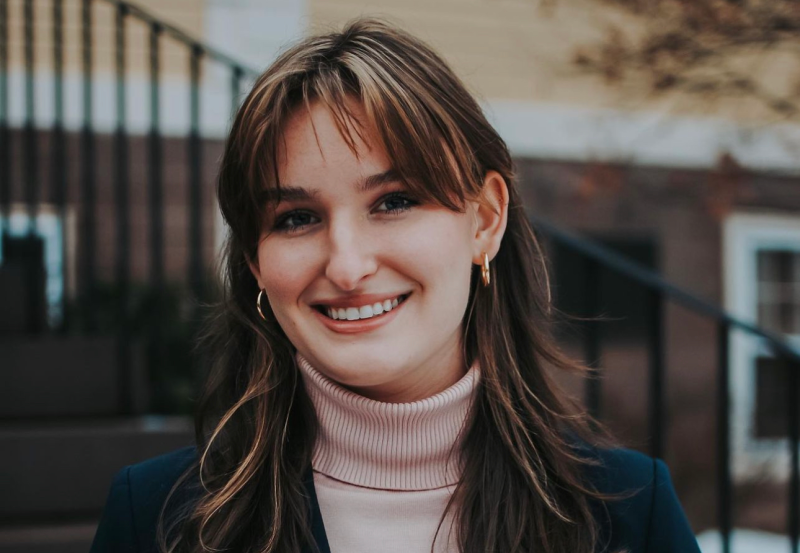 between academic pursuits and a passion for figure skating. Emma Mariano, shared insights into her harmonious balancing act, revealing a carefully crafted routine that revolves around a love for both academic pursuits and the icy thrill of skating.
between academic pursuits and a passion for figure skating. Emma Mariano, shared insights into her harmonious balancing act, revealing a carefully crafted routine that revolves around a love for both academic pursuits and the icy thrill of skating.
For Emma, time management has been a key melody in her academic journey. With a schedule orchestrated down to the day; she dedicates Mondays and Fridays exclusively to academic work, leveraging a class-free schedule on these days. Evenings on Sundays and Tuesdays are reserved for skating practice, and weekends often see the thrill of competition, leaving her academic work temporarily on ice.
For our dedicated skater, the love for both her academic pursuits and skating has proven to be the cornerstone of her success. The symbiotic relationship between academics and athletics serves as a testament to the importance of pursuing one's passions. Skating provides a vital outlet, enhancing Emma’s mental health by offering precious moments of respite from academic pressures.
Her skating journey began in third grade, and by sixth grade, she had joined a local synchronized skating team in her hometown of Warwick, Rhode Island. The COVID-19 pandemic forced an unexpected hiatus from skating in 2020, coinciding with the commencement of her graduate school application process. With the discovery of a synchronized skating team at Mizzou, Emma was joyously reunited with their beloved sport, seamlessly integrating it into the demands of academic life.
In an inspiring narrative of passion, dedication, and resilience, this graduate student exemplifies the art of balancing academia and personal interests. The ability to seamlessly integrate figure skating into the rigorous demands of PhD studies serves as a testament to the adage: when you love what you do, finding a way to make it all work becomes second nature.
More on Emma and the Mizzou Ice Synchronized Club team
Measurements of Success
The MU Graduate School collects data on admission, enrollment, and completion rates for the various graduate degree programs.
Click here to explore these data.
Success Support